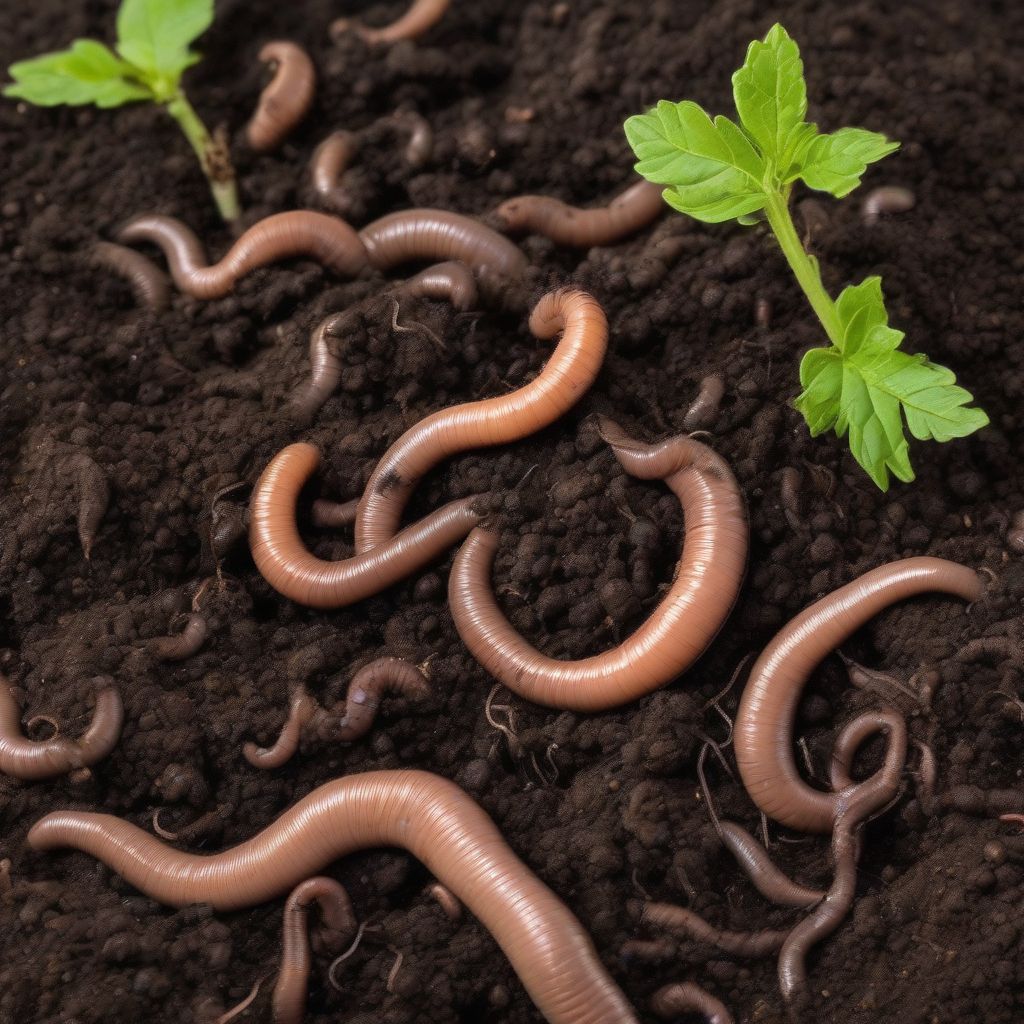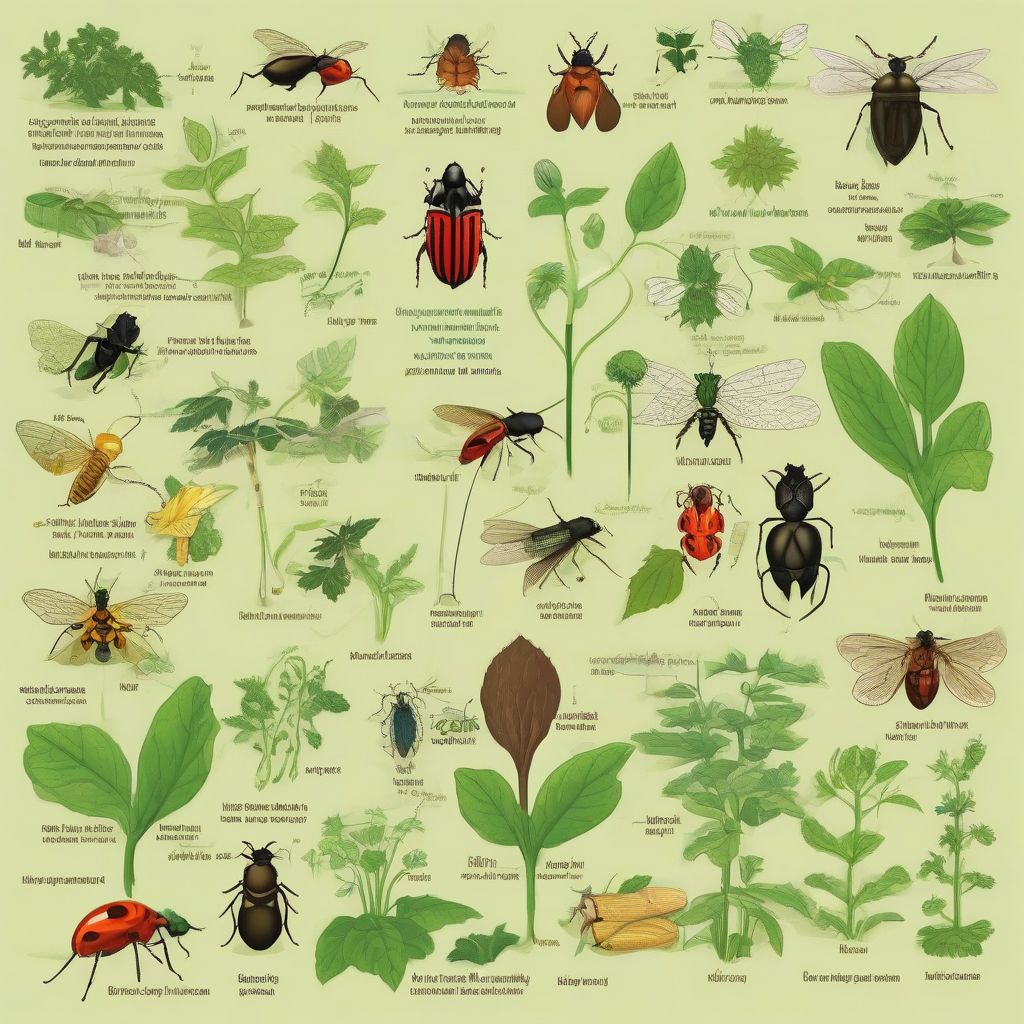Imagine stepping out into your backyard and being greeted by a vibrant, thriving garden bursting with colorful flowers, plump vegetables, and the sweet aroma of herbs. This isn’t a scene from a movie—this can be your reality with the power of organic gardening! Forget harsh chemicals and embrace the natural way to cultivate a garden that’s not only good for you but also good for the environment.
Whether you’re a seasoned gardener looking to ditch the synthetics or a beginner wanting to start right, this guide is brimming with organic plant care tips to help you cultivate a healthy and productive garden that will be the envy of your neighborhood.
Understanding the Foundation: Building Healthy Soil
The key to a successful organic garden lies beneath the surface—in the soil. Healthy soil is teeming with life, from earthworms to beneficial microbes, working together to create a fertile foundation for your plants.
Nurture Your Soil with Compost
Compost is often called “black gold” for a reason. This nutrient-rich mixture, created from decomposed organic matter like kitchen scraps and yard waste, acts like a superfood for your soil. Compost improves soil structure, enhances water retention, and provides essential nutrients that fuel plant growth.
Mulch Matters: Dress Your Soil for Success
Mulching isn’t just about aesthetics; it’s like tucking your garden beds into a cozy blanket. A layer of organic mulch, such as wood chips or straw, helps retain moisture, suppresses weeds, and regulates soil temperature, creating an ideal environment for your plants to thrive.
 Healthy Garden Soil
Healthy Garden Soil
Watering Wisely: Quenching Your Plants’ Thirst
Just like us, plants need water to survive, but overwatering can be just as detrimental as underwatering.
Water Deeply and Less Often
Encourage deep root growth and drought tolerance by watering deeply and less frequently. Instead of giving your plants a quick sprinkle every day, water them thoroughly until the soil is moist a few inches below the surface.
Timing is Key: Water in the Morning
Watering in the early morning allows the plants to absorb the moisture throughout the day and prevents fungal diseases that can develop in damp conditions overnight.
Feeding Your Plants the Organic Way
Organic fertilizers nourish your plants with natural ingredients, promoting healthy growth without the harmful side effects of synthetic chemicals.
Opt for Organic Fertilizers
Look for fertilizers derived from natural sources like compost, manure, bone meal, or fish emulsion. These options release nutrients slowly, providing a steady supply of nourishment to your plants.
Embrace Cover Crops: Nature’s Green Manure
Cover crops, like clover or buckwheat, are planted not for harvest but to improve soil health. They add organic matter, prevent erosion, and fix nitrogen from the air into the soil, acting as a natural fertilizer.
Keeping Pests and Diseases at Bay Naturally
A healthy garden is less susceptible to pests and diseases, but even the most well-maintained gardens can encounter a few challenges.
Encourage Beneficial Insects
Welcome natural predators like ladybugs and lacewings into your garden; they feast on common garden pests like aphids, keeping their populations in check.
Homemade Pest Control Solutions
Create your own pest control solutions using natural ingredients. A spray of soapy water can deter aphids, while a mixture of garlic and water can ward off other unwanted insects.
Choosing the Right Plants: Location is Key
Selecting plants that are well-suited to your climate and soil type is crucial for their success.
Embrace Native Plants
Native plants have evolved to thrive in your region’s specific conditions, requiring less water and maintenance while attracting local pollinators.
Consider Sunlight Requirements
Pay attention to the amount of sunlight your garden receives throughout the day and choose plants that will flourish in those conditions. Some plants bask in full sun, while others prefer partial shade.
 Organic Pest Control
Organic Pest Control
Organic Gardening: A Rewarding Journey
Embracing organic gardening methods might require a bit more patience and observation, but the rewards are immeasurable. You’ll enjoy:
-
Healthier Food: Knowing your fruits, vegetables, and herbs are free from harmful chemicals provides peace of mind and nourishes your body with the best nature offers.
-
Environmental Protection: Organic gardening practices protect the environment by conserving water, reducing pollution, and promoting biodiversity.
-
A Deeper Connection to Nature: Gardening organically connects you with the natural world, allowing you to witness firsthand the magic of growth and the interconnectedness of all living things.
Conclusion: Cultivate Your Organic Oasis
Growing a thriving organic garden is a journey of learning, adapting, and finding joy in the process. By following these organic plant care tips, you’ll be well on your way to cultivating a healthy and productive garden that provides fresh, flavorful food while nurturing the planet.
As you embark on your organic gardening adventure, remember to embrace the journey. Don’t be afraid to experiment, learn from your experiences, and enjoy the incredible rewards of nurturing life from the ground up.
What are your favorite organic gardening tips? Share your experiences and insights in the comments below!
[amazon bestseller=”organic gardening”]
